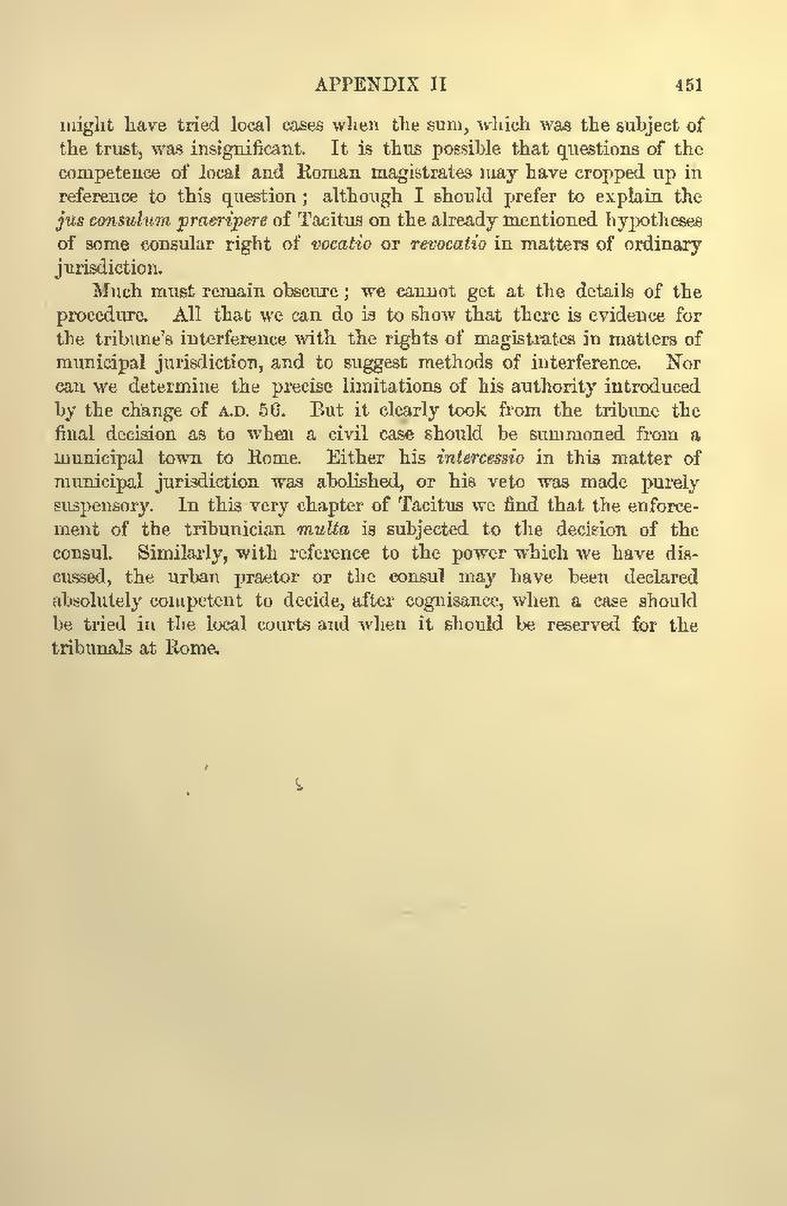might have tried local cases when the sum, which was the subject of the trust, was insignificant It is thus possible that questions of the competence of local and Roman magistrates may have cropped up in reference to this question; although I should prefer to explain the jus consulum praeripere of Tacitus on the already mentioned hypotheses of some consular right of vocatio or revocatio in matters of ordinary jurisdiction.
Much must remain obscure; we cannot get at the details of the procedure. All that we can do is to show that there is evidence for the tribune's interference with the rights of magistrates in matters of municipal jurisdiction, and to suggest methods of interference. Nor can we determine the precise limitations of his authority introduced by the change of A.D. 56. But it clearly took from the tribune the final decision as to when a civil case should be summoned from a municipal town to Rome. Either his intercessio in this matter of municipal jurisdiction was abolished, or his veto was made purely suspensory. In this very chapter of Tacitus we find that the enforcement of the tribunician multa is subjected to the decision of the consul. Similarly, with reference to the power which we have discussed, the urban praetor or the consul may have been declared absolutely competent to decide, after cognisance, when a case should be tried in the local courts and when it should be reserved for the tribunals at Rome.
